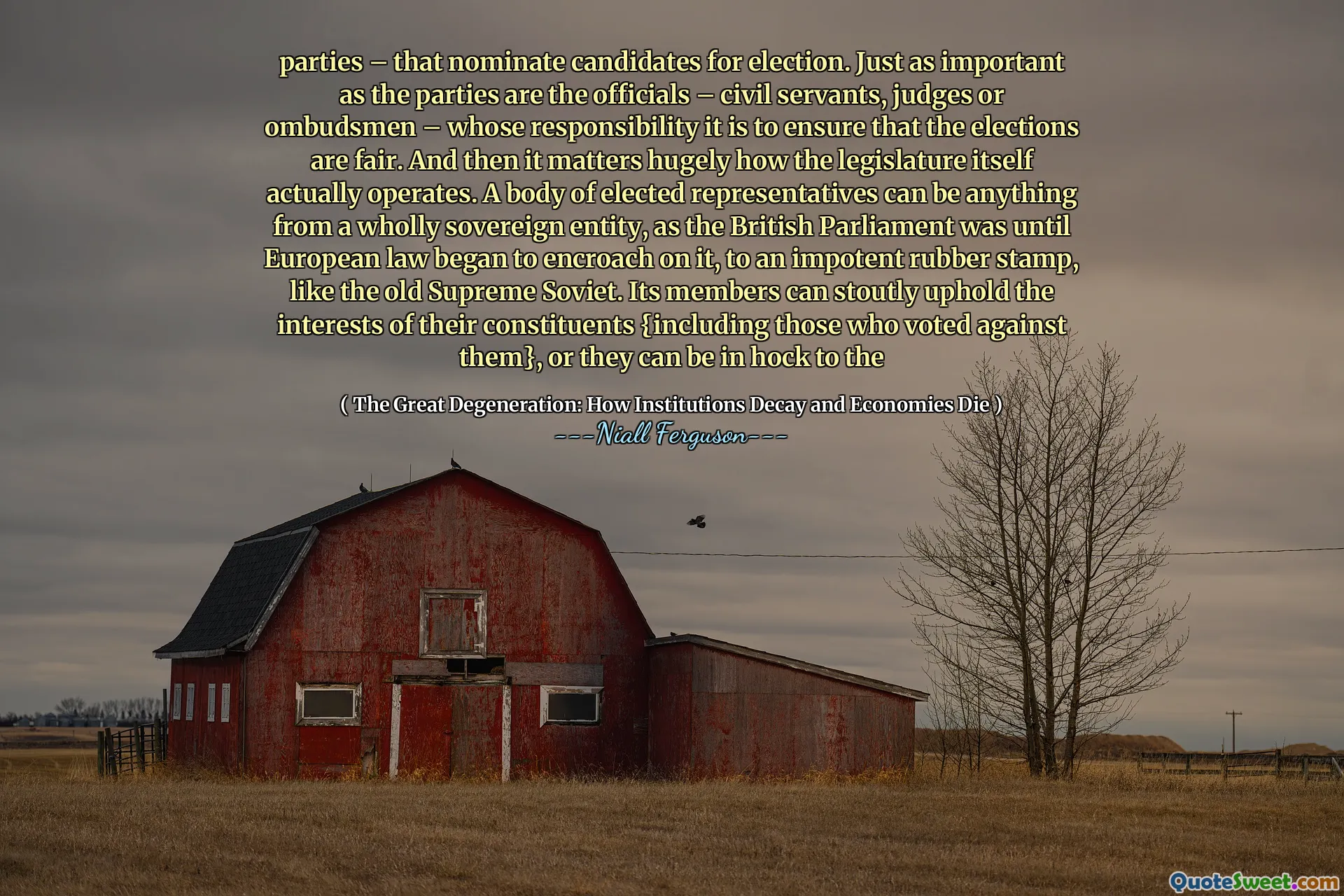
parties – that nominate candidates for election. Just as important as the parties are the officials – civil servants, judges or ombudsmen – whose responsibility it is to ensure that the elections are fair. And then it matters hugely how the legislature itself actually operates. A body of elected representatives can be anything from a wholly sovereign entity, as the British Parliament was until European law began to encroach on it, to an impotent rubber stamp, like the old Supreme Soviet. Its members can stoutly uphold the interests of their constituents {including those who voted against them}, or they can be in hock to the
Political parties play a crucial role in the election process by nominating candidates who will represent them. Equally important are officials like civil servants and judges who work to ensure the integrity of elections. The credibility of elections largely depends on how these officials conduct their tasks, as well as on the structure and functionality of the legislative body.
The legislature's effectiveness varies widely. It can be a powerful body, like the British Parliament, or a mere figurehead, such as the former Supreme Soviet. Legislators have the responsibility to represent their constituents, including those who dissent from their views. This dynamic can significantly influence the political landscape, impacting both governance and public trust.











